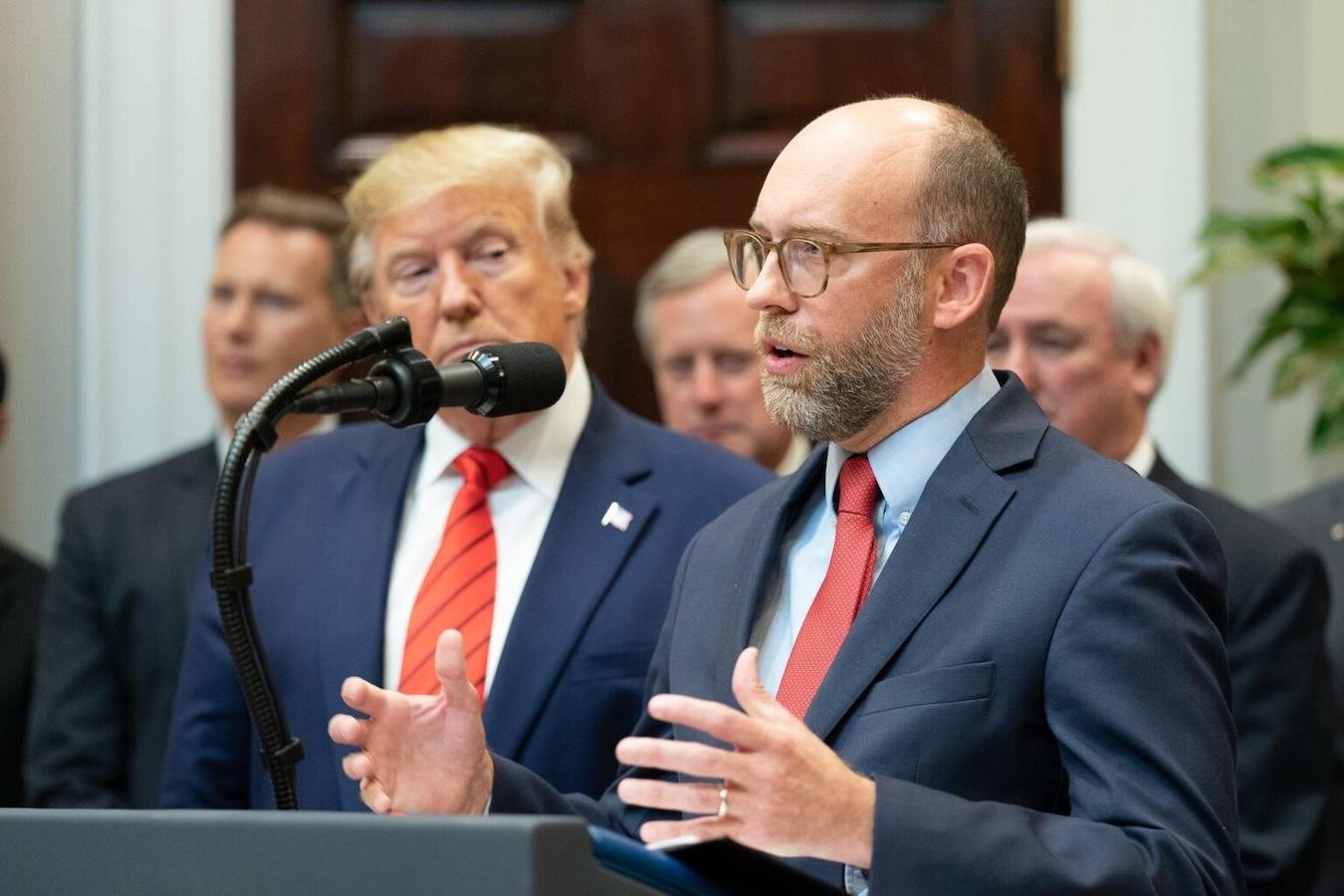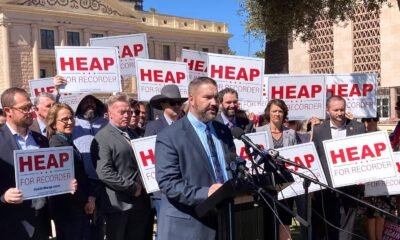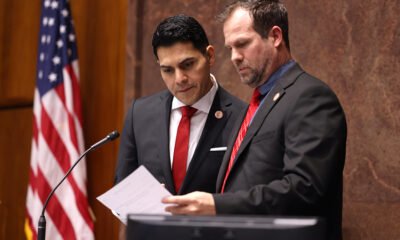Business
New Budget Chief Unveils Bold Project 2025 Agenda to Strengthen Presidential Power

Russ Vought, the incoming White House budget director, has cultivated a deep understanding of the Office of Management and Budget (OMB) throughout his career. While this agency may go unnoticed by those outside Washington, its influence on the executive branch is substantial, serving as a central hub for federal operations.
As the architect behind the president’s annual budget request, Vought will oversee essential governmental functions by managing performance across departments, scrutinizing federal regulations, and facilitating communication between agencies and Congress. His experience includes roles as deputy director, acting director, and director at OMB during Donald Trump’s first term.
Prior to joining OMB, Vought played pivotal roles in various conservative organizations, including Heritage Action for America and the Republican Study Committee. He holds a degree from Wheaton College and a law degree from George Washington University. Post-Trump term, he founded the Center for Renewing America, aimed at fostering a national consensus based on traditional American values and principles.
Vought has articulated his vision in “Project 2025,” a comprehensive 922-page document affiliated with the Heritage Foundation. This blueprint has stirred conversation regarding Trump’s potential actions regarding government spending, particularly in light of constitutional divisions of power. During the campaign, Vice President Kamala Harris linked Project 2025 to Trump, prompting his campaign to clarify their stance on its recommendations.
A key responsibility for Vought will be the release of the annual budget request, which proposes tax and spending policies, though Congress ultimately wields authority in these matters. Approximately one-third of federal expenditures are dictated through these annual funding bills, with the remainder primarily tied to mandatory programs like Social Security and Medicare.
This dynamic created notable tension during Trump’s previous term, where impoundment strategies were discussed to limit authorized federal spending. Trump’s actions in withholding security funds to Ukraine led to significant legal consequences, including one of his impeachments and a ruling by the Government Accountability Office that he violated the law.
Vought faces the challenge of advocating for fiscal restraint while navigating the established legal framework governing federal budgets. His think tank has declared the Impoundment Control Act unconstitutional, suggesting a contentious path forward.
In “Project 2025,” Vought emphasized the importance of the president’s budget as more than administrative paperwork, advocating for it as a critical tool to shape federal agency policies. He argued for an administration that harnesses every available resource to impose fiscal discipline, cautioning against bureaucratic inertia that hinders presidential objectives.
Ultimately, Vought envisions a leadership approach where political appointees hold substantive authority, pushing an agenda driven by the president’s priorities rather than existing bureaucratic norms. In doing so, he seeks to counteract what he describes as the bureaucratic “M Train to Nowhere.”


















